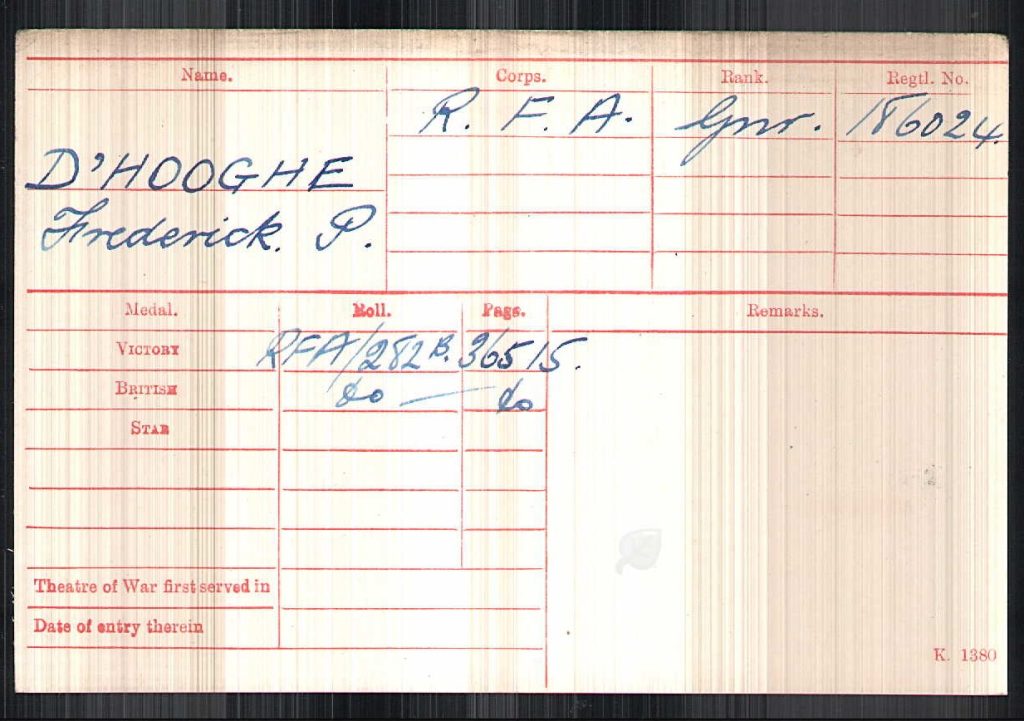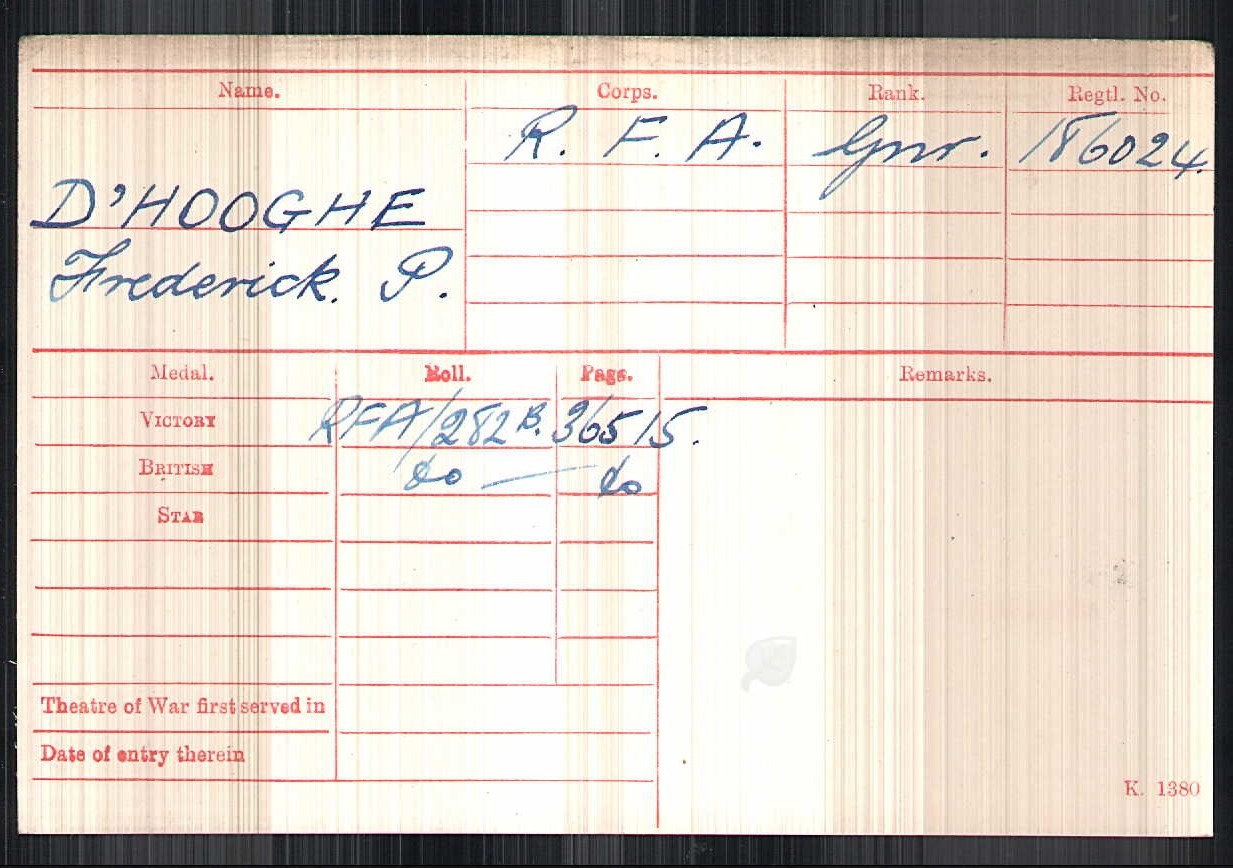The 1911 Census finds Frederick living with his parents at 51 Loughborough Road, West Bridgford, Nottingham. He is aged 22 and working as a warehouseman in the city’s Lace Market.
Further records show that he married in July 1913 to Clara White, and by the time that he attested in the army in 1915, he had two children, Hilda and Constance and was living at 31 Julien Road, West Bridgford, Nottingham. Frederick survived the war and post war produced four further children, Frederick, Dorothy, Marjorie and Barbara.
Frederick is fortunate that his WWI Service Record has survived and from this we can see that he attested under the Lord Derby Scheme on 8th December 1915 and then returned to his civilian life until mobilised on 1st November 1916.
He was posted to the Royal Field Artillery Depot at Newcastle joining the 3rd Reserve Battery on 18th November 1916. After initial training, he was posted to 291 Battery RFA. This battery formed part of the 58th (2nd/1st London) Divisional Artillery and they crossed to France in early 1917 with their howitzers.
Frederick arrived in France on 17th March 1917 and was in action with his Brigade at the German retreat to the Hindenburg Line, the battle of Bullecourt, action at the Hindenburg Line – both were phases of the battle of Arras, and then at the battle of the Menin Road, Polygon Wood and the 2nd battle of Passchendaele – all phases of the 3rd battle of Ypres.
In early April 1918, during the German Spring Offensive, Frederick was severely gassed and returned to the RFA Depot Hospital at Ripon, Yorkshire. He was admitted on the 23rd April, discharged on 3rd August, re-admitted on 10th August and finally discharged on 18th August 1918, when he was categorised as being A3 for fitness.
He returned to France in mid-November 1918 as the fighting came to an end, and was posted to 246 Brigade in March 1919 and went to Germany as part of the occupying Army of the Rhine.
A further trawl through the records shows that whilst Frederick was in France in 1917, he stopped making child maintenance payments to Maria Keetley of 5 Twells Road, St. Ann’s, Nottingham for a daughter, Mabel, that he had fathered out of wedlock in 1908.
Maria made an application to the Court in Nottingham in February 1917. Frederick did not dispute Maria’s claim and it was ordered that 5s (5 Shillings) a week should be deducted from his pay and sent to Maria until Mabel attained the age of 15.
As a footnote, my research uncovered the fact that Maria’s brother, Robert Keetley, of the same address, was killed in action on 25th October 1917 whilst serving with 10th battalion of the King’s Own Yorkshire Light Infantry. Frederick eventually arrived at a UK Dispersal Centre on 12th October 1919 before being officially demobilised on 9th November 1919. He was placed on the Army Reserve and awarded the British War Medal and the Victory Medal.


